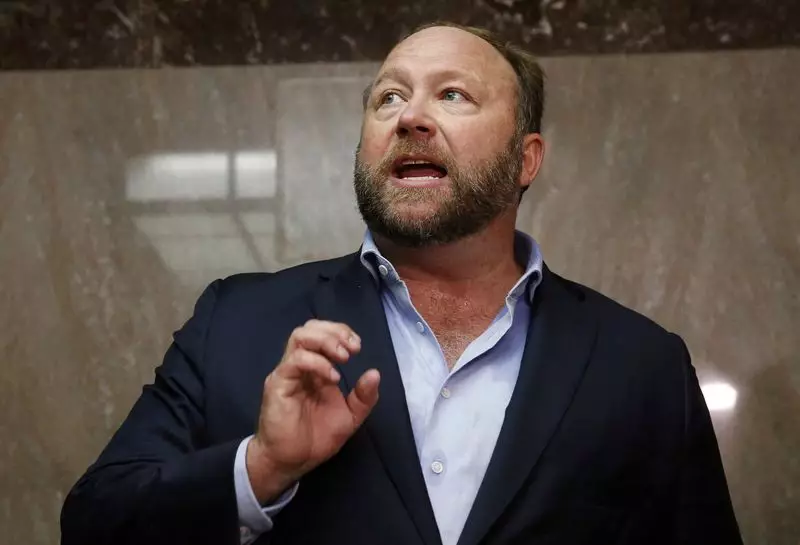The recent ruling by U.S. Bankruptcy Judge Christopher Lopez regarding the auction of Alex Jones’ Infowars website has sparked significant discourse around the complexities of bankruptcy, asset liquidation, and the ethical implications of media ownership. This ruling represents a critical junction not only for creditors involved in Jones’ bankruptcy proceedings but also for the legacy of a controversial figure in the media landscape.
Alex Jones, known for his inflammatory conspiracy theories and pseudoscientific claims, faced bankruptcy in 2022 after being ordered to pay over $1.3 billion in damages related to his slander against families affected by the Sandy Hook tragedy. The implications of such a massive financial judgment have made the liquidation of his assets, including the highly recognized yet polarizing Infowars platform, a topic of profound interest and public scrutiny.
The auction for Infowars, held in November, was mistakenly thought to have concluded with The Onion securing the purchase. However, as the proceedings unfolded, it became clear that the process was fraught with issues, particularly concerning the potential undervaluation of the Infowars brand and the overall fairness of the auction itself.
Judge Lopez’s Ruling: A Call for Transparency
During a two-day hearing in Houston, Judge Lopez articulated that the bankruptcy auction fell short of his expectations and outlined fundamental flaws in the process handled by the court-appointed trustee. The judge underscored a “good-faith error” that led to the hasty closure of bidding, arguably depriving Infowars of higher potential offers, especially in light of the financial pressures surrounding Jones’ bankruptcy.
Lopez’s decision to reject the claims of collusion by Jones is significant. The allegations pointed towards a supposed alignment between The Onion and other creditor families, which Jones claimed tainted the sales process. However, Lopez’s remarks imply a more systemic issue related to the auction’s structuring rather than any illicit maneuvering from The Onion or its supporters.
The competition for Infowars has presented nuanced arguments from both sides. Advocate Chris Mattei, representing the Sandy Hook families, voiced disappointment over the ruling, emphasizing that their objective remains grounded in accountability rather than financial windfall. The families are synonymous with a long struggle against misinformation propagated by Jones and see the sale of Infowars not just as a financial transaction but as a pivotal moment in the battle against the spread of harmful disinformation.
On the other hand, The Onion, a platform known for its satirical news offerings, had intended to transform Infowars into a vehicle for parody. This juxtaposition of aims illustrates the stark contrast between the lucrative allure of media empires built on misinformation and the aspirations for ethical, comedic engagement with the news. Ben Collins, CEO of The Onion, expressed disappointment over the ruling yet affirmed their commitment to a project that they believe could “create a better, funnier internet.”
The Future of Infowars and Ethical Media Considerations
With the bankruptcy trustee instructed to reevaluate the sale of Infowars, the pathway forward remains uncertain. Important questions loom over how Jones’ significant debts will be settled given the reported inadequacy of the bids. The judge’s contention that calculated bids must truly reflect the worth of the assets in this highly publicized bankruptcy ensures that the ongoing proceedings will remain in the spotlight, thus keeping the ethical considerations around media ownership and capitalist responsibility front and center.
The auction’s aftermath not only highlights the contentious relationship between public figures and their legacy but also presents an opportunity for broader reflections on the media landscape. As the world grapples with the lingering effects of misinformation and the cultural ramifications of its proponents, the future of Infowars may yet play a pivotal role in redefining the stakes of information dissemination in a highly connected society.
The complexities surrounding the ruling extend far beyond the immediate financial implications, hinting at shifting paradigms in media ownership and accountability while establishing a critical discourse on the ethical dimensions of what information should be perpetuated in our digital age.

